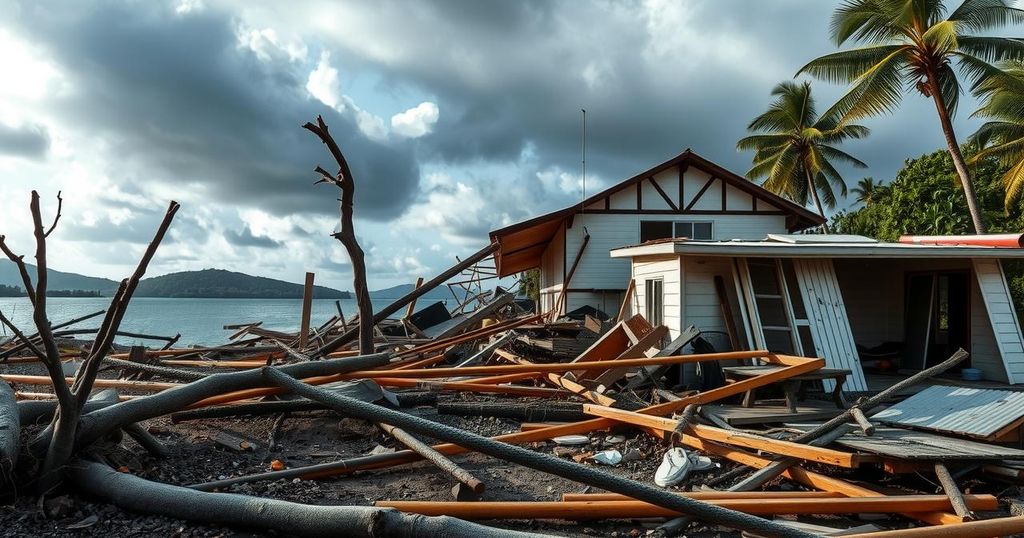Cyclone Chido’s Devastating Impact on Mayotte: A Growing Humanitarian Crisis

Cyclone Chido has wreaked havoc in Mayotte, with at least 11 confirmed fatalities and extensive infrastructure damage. Rescue efforts are hampered by power outages and lack of clean water. French officials are deploying additional support to the territory, while UNICEF and other organizations are mobilizing aid for those in need.
The French overseas territory of Mayotte is grappling with the aftermath of Cyclone Chido, which severely impacted the region over the weekend. French Interior Minister Bruno Retailleau reported a current death toll of at least 11, while local authorities communicated that it may rise as rescue efforts continue. The cyclone left nine individuals in critical condition and injured 246 others. In response, Minister Retailleau will travel to the region on Monday with 160 military personnel and firefighters to assist the existing emergency response team.
Cyclone Chido, which struck Mayotte with winds exceeding 226 kilometers per hour, was noted as the most destructive storm to hit the territory in nearly a century. This notable cyclone has also impacted neighboring regions, including Comoros and Madagascar, before making landfall in Mozambique. Despite emergency efforts, the logistical challenges have severely hampered relief operations on the island, where essential services such as electricity and clean drinking water are greatly compromised.
Mayotte’s population of approximately 320,000 endured a government-mandated lockdown as the storm approached, leading to extensive damage to housing and infrastructure. Acting Interior Minister Retailleau indicated that shantytowns were entirely destroyed, and widespread destruction to electrical and communication infrastructure occurred, further complicating rescue operations. Response teams are actively assessing the needs of the affected individuals, and aid is being dispatched from La Réunion, another French territory in the Indian Ocean.
As many as 15,000 households are currently without power. Additionally, reports indicate that the health network in Mayotte has suffered significant damage, impacting the local hospital’s capacity to treat residents. Meanwhile, UNICEF has mobilized to offer assistance to those affected by the cyclone, highlighting the scale of destruction.“Many homes, schools and health facilities have been partially or completely destroyed.” With climate change heightening the frequency and intensity of storms, Cyclone Chido is viewed as part of a troubling trend that demands urgent attention from global policymakers.
Cyclone Chido made landfall in Mayotte as a formidable tropical cyclone, inflicting unprecedented damage and causing substantial loss of life. The particular vulnerability of the region is exacerbated by chronic infrastructural issues, including limited access to clean drinking water and adequate medical facilities. The widespread destruction calls for international humanitarian assistance and highlights the need for preparations against future extreme weather events, especially as climate change continues to influence storm patterns across the globe. The ongoing rescue efforts underscore the fragility of the region’s readiness to respond to natural disasters and the critical need for improved emergency response systems.
In summary, Cyclone Chido has resulted in considerable devastation in Mayotte, leading to a tragic loss of life and extensive damage to infrastructure. The ongoing rescue efforts reveal the challenges of responding to such disasters in vulnerable territories. It is imperative for local and international stakeholders to prioritize disaster preparedness and response strategies to mitigate the impacts of future storms, especially amidst the growing threats posed by climate change. The situation continues to evolve, with emergency services striving to address the urgent needs of those affected.
Original Source: www.lemonde.fr







